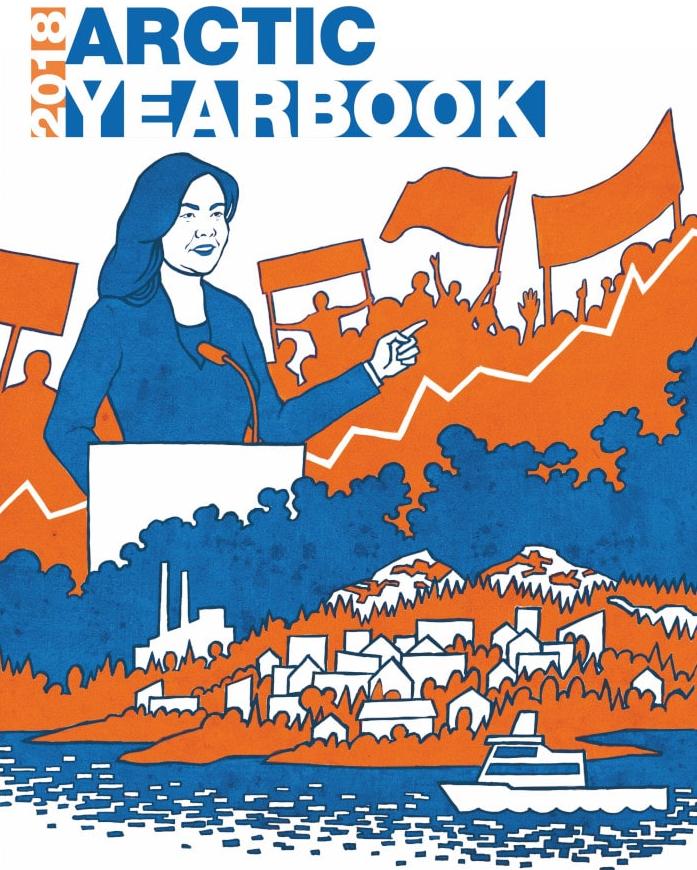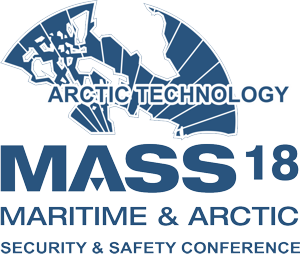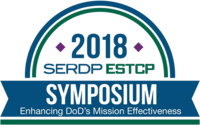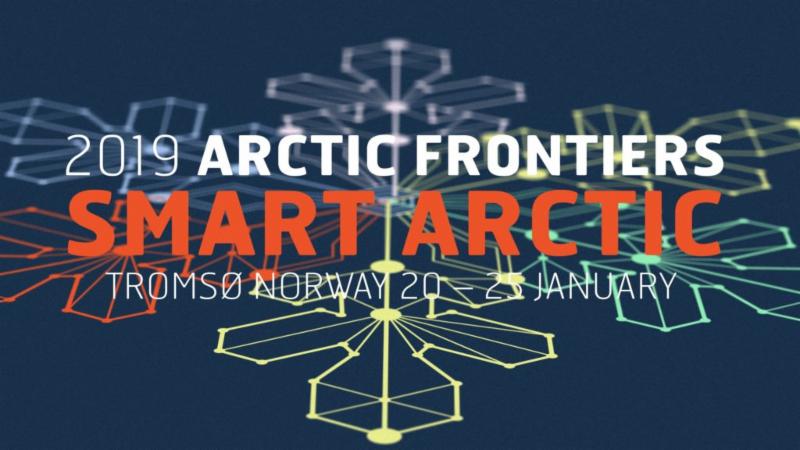|
|
|
|
|
|
|
|
Coastal Wetlands Reduce Disaster Risk, Protect Biodiversity, and Promote Human Health and Well-Being, November 6, 2018 (Webinar). This is part of the OneNOAA Science Seminar Series. There is substantial, growing literature that details positive human health effects, psychological and physiological, of exposure to "nature," including "green" and "blue space," with evidence suggesting that diversity of species or environments may have specific positive human health benefits. These health benefits are important ecosystem services provided by healthy ecosystems. In this presentation, we discuss several critical ecosystem services provided by wetlands including disaster risk reduction, with an emphasis on benefits to human health and well-being. Impacts to human health via damage to ecosystem services from disasters have rarely been considered in disaster planning or mitigation, nor have the health benefits been part of the framework for planning urban greenspaces and land-use. Coastal wetlands can be part of "natural and nature-based" solutions, minimizing the impacts of disasters by buffering coastal communities from storms and erosion and absorbing flood waters. In addition, mental and physical health benefits of experiencing healthy wetlands could offset some stress and disease encounters related to disasters.
|
Media
Models Show Natural Swings in the Earth's Climate Contribute to Arctic Sea Ice Loss. New research by a Lawrence Livermore National Laboratory (LLNL) scientist and collaborators show that Arctic sea ice loss is enhanced by natural climate fluctuations such as El Niños and La Niñas. With manmade greenhouse gases on top of the natural climate variability, the decrease in sea ice is even more severe than climate models originally estimated. Using a series of climate models, the team used a "fingerprint" method to estimate the impact of natural climate variability. Natural swings in the Earth's climate contribute to about 40 percent to 50 percent of the observed multi-decadal decline in Arctic sea ice. Phys.org
 Arctic Yearbook's 2018 Edition Focus on China in the Arctic. Arctic Yearbook's 2018 Edition Focus on China in the Arctic. China's role in the Arctic is the focus of the latest Arctic Yearbook, produced by the Northern Research Forum and the University of the Arctic. This year's edition of the academic publication, released online last week, puts a spotlight on China's interest in Arctic resources and shipping corridors. The 2018 Arctic Yearbook also looks at some of China's challenges in operating in the Arctic, and at how China's present reach in the Arctic is sometimes over-hyped. Nunatsiaq Online Science at Nunavut's Canadian High Arctic Research Station Awaits Wake-up Call. The Canadian High Arctic Research Station looks like a facility on standby-maybe for an army of scientists working on a topic of national or international importance, such as a biochemical threat, a new disease or the landing of an alien spacecraft, or perhaps to house the entire top leadership of the federal government in an emergency. Martin Raillard, the chief scientist at CHARS in Cambridge Bay, says he has a more down-to-earth dream: to see the 7,900 square meters of the main science building bustling with activity, with 100 researchers at work. Nunatsiaq Online High Capacity Sleds for Arctic and Antarctic Exploration to be Tested in November. A prototype freight sled made of polymers will be sent from St. Petersburg to the Antarctic this November for testing, Interfax reported citing General Director of Komsomolskaya Pravda Plastics Processing Research and Production Association Sergei Tsybukov. The sled has a capacity of up to 60 tons and can travel long distances at extremely low temperatures. "Today we will begin to assemble a sled with the highest cargo capacity for use in the Arctic and Antarctic. It will be assembled by November 5, and on November 6 it will be loaded aboard the Akademik Fyodorov, which will spent two months traveling to the Antarctic where the design will be fully tested," Tsybukov said. The Arctic  One Billion Rubles to be Earmarked for Arctic and Antarctic Research. One Billion Rubles to be Earmarked for Arctic and Antarctic Research. TASS reports that there are plans to increase funding for scientific research in the Arctic and Antarctic by more than one billion rubles in 2019-2021. The draft budget sets aside this amount for three years, Deputy Minister of Science and Higher Education Sergei Kuzmin said at the general conference of heads of universities and research institutes in St. Petersburg. "Expedition activity is growing, including in the Arctic and Antarctic, and additional funds of over one billion rubles are being allocated for a three-year period," the deputy minister added. The Arctic
|
|
Future Events
Northern rock sole recruitment response to winds and temperature in the eastern Bering Sea, November 7, 2018 (Webinar). This seminar is part of NOAA's EcoFOCI bi-annual seminar series focused on the ecosystems of the North Pacific Ocean, Bering Sea and U.S. Arctic to improve understanding of ecosystem dynamics and applications of that understanding to the management of living marine resources. This webinar will consider issue of creating environment-recruitment models for short and long-term forecasting of rock sole.
The increasing rate of Arctic change: how should the research community keep up? Session II, November 15, 2018 (Webinar). The Study of Environmental Arctic Change (SEARCH) seeks a broad conversation with past, present, and future members of its community on how SEARCH might serve to advance synthesis and engagement in the coming decades? What coordination of research and communication is needed? This video conference (Zoom) continues a discussion (The Increasing Second Derivative of Arctic Change) held by webinar on 5 October 2018. For more information, contact Brendan P. Kelly (bpkelly@alaska.edu) SEARCH Executive Director. Register and receive webinar link
Maritime & Arctic Security & Safety Conference (MASS18) "Arctic Technology" November 15-16, 2018 (Newfoundland & Labrador Canada). Now in its sixth year, MASS has gained an international reputation as a  must-attend event to gain a wide perspective on challenges, opportunities and policies related to the Arctic and North Atlantic maritime environments. The aim of this Government of Canada and the Government of Newfoundland and Labrador supported international conference is to promote stakeholder collaboration, technological innovation, harsh environment research & development, and world-class education efforts that are contributing to both Maritime and Arctic issues. This two day conference will draw a diverse group of speakers and attendees representing government, military, Canadian and U.S. Coast Guard, industry, academic leaders, Northern Leaders, research and other key stakeholders. We hope you can join us to be a part of this important dialogue must-attend event to gain a wide perspective on challenges, opportunities and policies related to the Arctic and North Atlantic maritime environments. The aim of this Government of Canada and the Government of Newfoundland and Labrador supported international conference is to promote stakeholder collaboration, technological innovation, harsh environment research & development, and world-class education efforts that are contributing to both Maritime and Arctic issues. This two day conference will draw a diverse group of speakers and attendees representing government, military, Canadian and U.S. Coast Guard, industry, academic leaders, Northern Leaders, research and other key stakeholders. We hope you can join us to be a part of this important dialogue
* new this week * DOD Arctic research session at SERDP/ESTCP, Nov. 29, 2018, Washington, DC. An Arctic research focus will be presented at the SERDP-ESTCP annual meeting "Enhancing DoD's Mission Effectiveness." The Strategic Environmental Research  and Development Program (SERDP) and Environmental Security Technology Certification Program (ESTCP) symposium is a nationally recognized conference focusing on DOD's priority environmental and installation energy issues. This year's meeting, at the Washington Hilton Hotel, 1919 Connecticut Ave., NW, Washington, DC 20009, will feature a technical session on Arctic research under the theme of "Resource Conservation and Resiliency." The session is scheduled for Thursday, Nov. 29th, from 8:30 am to 11:30 am, and will include the following speakers: Andrew Nelson (USACE), John Farrell (USARC), Martin Jeffries (USACE/CRREL), John Woods (ONR-RC), Kevin Bjella (USARC/CRREL), and Hajo Eicken (UAF/IARC). and Development Program (SERDP) and Environmental Security Technology Certification Program (ESTCP) symposium is a nationally recognized conference focusing on DOD's priority environmental and installation energy issues. This year's meeting, at the Washington Hilton Hotel, 1919 Connecticut Ave., NW, Washington, DC 20009, will feature a technical session on Arctic research under the theme of "Resource Conservation and Resiliency." The session is scheduled for Thursday, Nov. 29th, from 8:30 am to 11:30 am, and will include the following speakers: Andrew Nelson (USACE), John Farrell (USARC), Martin Jeffries (USACE/CRREL), John Woods (ONR-RC), Kevin Bjella (USARC/CRREL), and Hajo Eicken (UAF/IARC).
Causes for the record low sea-ice extent in the Bering Sea in 2018, November 19, 2018 (Webinar). This seminar is part of NOAA's EcoFOCI bi-annual seminar series focused on the ecosystems of the North Pacific Ocean, Bering Sea and U.S. Arctic to improve understanding of ecosystem dynamics and applications of that understanding to the management of living marine resources. This webinar will be an in-depth look at the driving factors of a warm Bering Sea including ice arrival, extent, and implications.
American Geophysical Union Fall meeting, December 10-14, 2018 (Washington, DC USA). The AGU 2018 Fall Meeting will mark another dynamic year of discovery in Earth and space science, serve as the advent of AGU's Centennial year, and provide a special opportunity to share our science with world  leaders in Washington, D.C. As the largest Earth and space science gathering in the world, the Fall Meeting places you in the center of a global community of scientists drawn from myriad fields of study whose work protects the health and welfare of people worldwide, spurs innovation, and informs decisions that are critical to the sustainability of the Earth.
USARC Commissioner Jacqueline Richter-Menge to deliver the Nye Lecture at the 2018 AGU Fall Meeting. The US Arctic Research Commission (USARC) is pleased to announce that Commissioner Jacqueline Richter-Menge will present this year's Nye Lecture, titled "A Career of Change," at the Fall Meeting of the American Geophysical Union (AGU) in Washington, DC at 2:50 pm on Tuesday, December 11, 2018 in the Marquis room of the Marriott Marquis Hotel, 901 Massachusetts Ave. NW, Washington, DC 20001.
ArcticNet: Annual Scientific Meeting 2018, December 10-14, 2018 (Ottawa, ON Canada). Canada's North is experiencing unprecedented change in its sea and terrestrial ice, permafrost and ecosystems under the triple pressures of climate change, industrialization and modernization. The impacts of these pressures can be seen on food and energy security, shipping, sovereignty, northern community health and well-being, and sustainable development and resource exploitation. All these issues have brought the North to the forefront of national and international agendas. Building on the success of its previous Annual Scientific Meetings and International Arctic Change Conferences, the Arctic Network of Centers of Excellence announces the 14th ArcticNet Annual Scientific Meeting.
 Arctic Frontiers, January 20-25, 2019 (Tromso, Norway). The Arctic Frontiers is a global scientific conference on economic, societal, and environmental sustainable growth. This year's theme will be "Smart Arctic," with a pan-arctic emphasis, and an effort to build new partnerships across nations, generations and ethnic groups. Arctic Frontiers provides a forum for dialogue and communication between science, government and industry. The plenary program will have five main sessions: State of the Arctic, Blue Growth, Smart Solutions, Bridging the Gap, and Arctic business prospects. An abstract-driven science program will address Plastics in the Ocean, the Future of Governance and Handling Vulnerability in Arctic Ecosystems, State of the Arctic and A Smart Arctic Future.
 of the AAG includes over 8,500 geographers converging from the U.S., Canada, and nearly 60 other countries in a typical year including geographers, GIS specialists, environmental scientists, and other leaders for the latest in research and applications in geography, sustainability, and GIScience. of the AAG includes over 8,500 geographers converging from the U.S., Canada, and nearly 60 other countries in a typical year including geographers, GIS specialists, environmental scientists, and other leaders for the latest in research and applications in geography, sustainability, and GIScience.
|
|

  
4350 N. Fairfax Drive, Suite 510
Arlington, VA 22203, USA
External links in this publication, and on the USARC's World Wide Web site ( www.arctic.gov) do not constitute endorsement by the US Arctic Research Commission of external Web sites or the information, products or services contained therein. For other than authorized activities, the USARC does not exercise any editorial control over the information you may find at these locations. These links are provided consistent with the stated purpose of this newsletter and the USARC Web site.
|
|
|
|
|
|
|
|
|